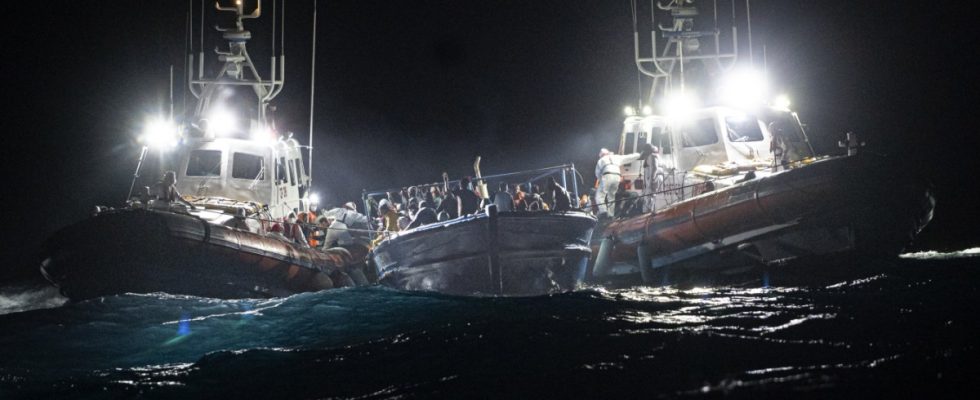Look here, the Germans have now arrived at reality. There was some ridicule towards the federal government when the EU ministers responsible for migration policy met in Brussels this week. Germany does not have a new government, but it does have new refugee numbers, said one of those involved in the discussions, recalling that last year German Minister Nancy Faeser pointed a moral finger at his country because the government does not accept refugees voluntarily – and Now Germany is closing its borders itself.
Germany is no longer opposed to the last cruelty in the construction kit of the major European asylum reform, the so-called crisis regulation. “We accept our responsibility, we agree,” said SPD Minister Faeser in Brussels, following a word of power from the Chancellor to the Greens. Refugees can therefore be locked up in camps for months if there is an exceptional rush at the borders. Faeser emphasized that she had negotiated some relief for migrants into the text. Germany’s role in European migration policy is still to put a humanitarian cloak over the ugly things. But that doesn’t change the fact that a turning point in European migration policy is being prepared here, with Berlin’s support.
However, the reform is not yet over because the Italians are now blocking it. Giorgia Meloni’s coalition partner Matteo Salvini apparently has the feeling that the supposed German do-gooders have been accommodated too far. He wants to establish the possibility of taking action against private sea rescuers in the event of a crisis. Negotiations are scheduled to take place again at diplomatic level on Monday; the dispute may not be resolved until the heads of state and government meet in Granada at the end of next week.
This means that further valuable time is lost. Only when the member states have agreed on all new asylum laws can the final negotiations on the entire package begin with the European Parliament. They will dominate the rest of the legislative period and, given the rapidly increasing number of refugees across Europe, their importance cannot be overestimated.
As Chancellor, Angela Merkel once declared migration to be the fateful question of the European Union; how it was dealt with would determine the disintegration or cohesion of Europe. This is also what the negotiations will be about. Because people are exhausted by major crises, and a perceived migration crisis that touches on questions of national and European identity is the best fodder of all for populists and nationalists.
It should be the start of the solidarity distribution among all EU members
The planned reforms are intended to ensure that all arriving migrants are fully recorded at the external borders. At least in principle, they offer the introduction to a system of solidarity-based distribution of refugees across all member states. Above all, the EU relies on detaining asylum seekers at the external borders with little chance of success and deporting them again from there. The most important goal: The number of refugees in Europe should decrease.
In the European elections in June 2024, the aim is to show the electorate with the completed reform: Europe is acting together on migration issues, Europe has a plan, Europe does not need nationalists and populists.
The reforms alone will hardly be enough to stop the right-wing wave that is expected in the European elections. They’re too late for that. After the crisis years of 2015 and 2016, it took the European Union too long to find a common migration policy. Now she is looking for short-term solutions. An agreement was hastily concluded with the shady Tunisian President Kais Saied to prevent the migrants from crossing to Italy. Similar deals with Egypt and Morocco will probably follow. The only European government to raise moral concerns is the German one.
The defining figure of European migration policy is currently not Olaf Scholz, but the post-fascist Giorgia Meloni. It will probably also dominate the next stage of the migration debates. The aim will be to no longer process European asylum procedures in Europe, but on other continents, for example in North Africa. There are fewer and fewer governments in Europe that oppose such ideas. Refugee-friendly states like Sweden and Denmark have committed themselves to a course of isolation, even in a liberal country like Belgium, refugees have to sleep in tents on the streets. And in France, Marine Le Pen is waiting to be deployed.

